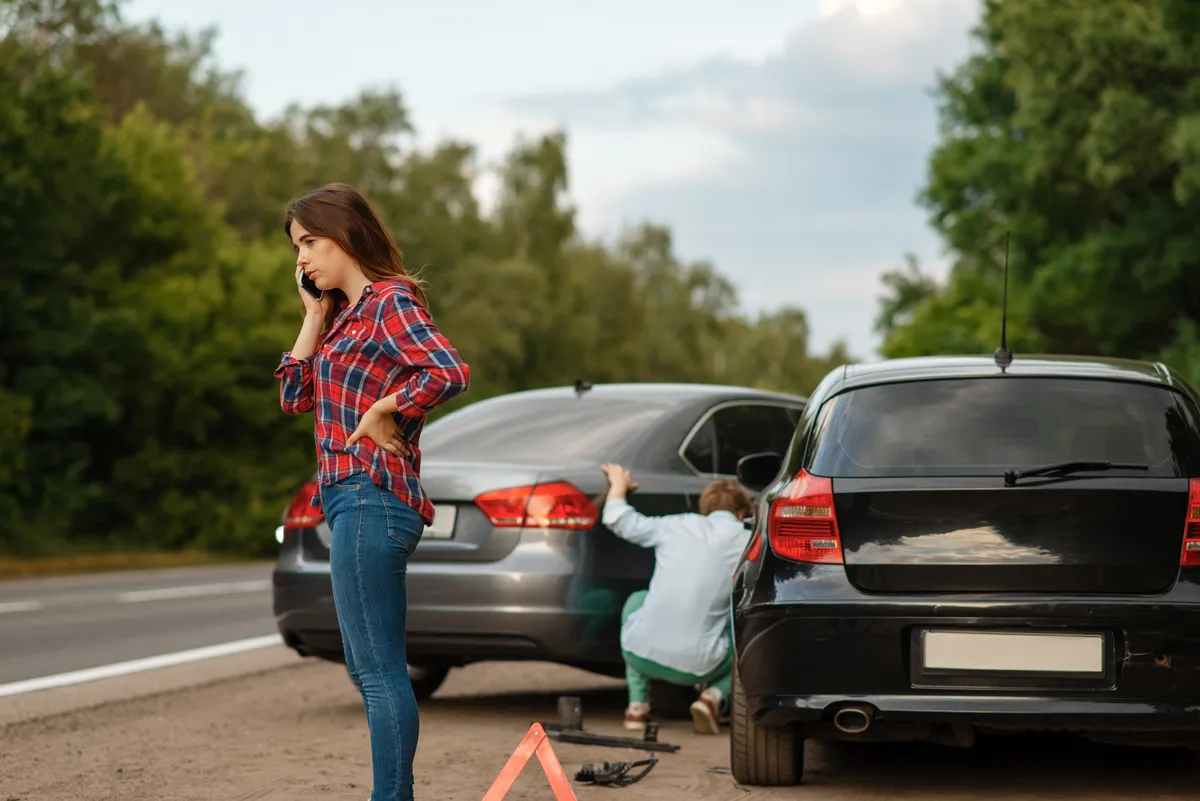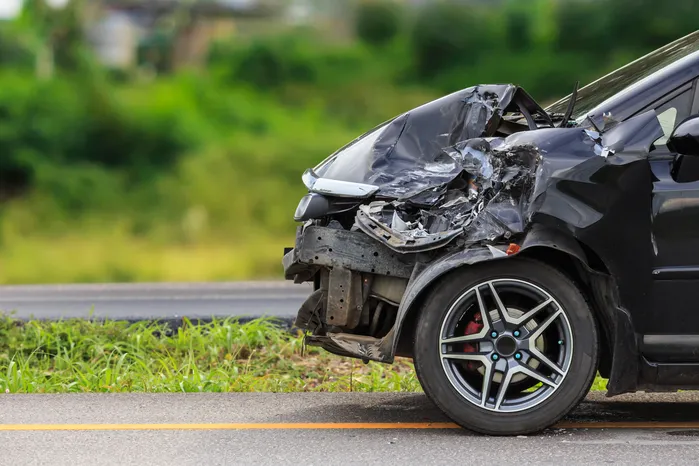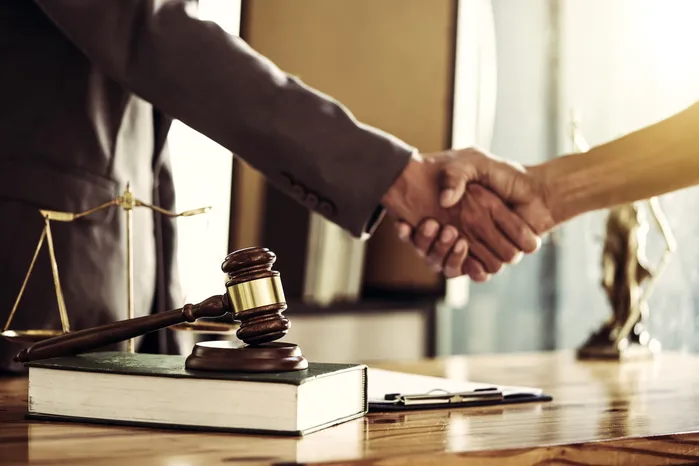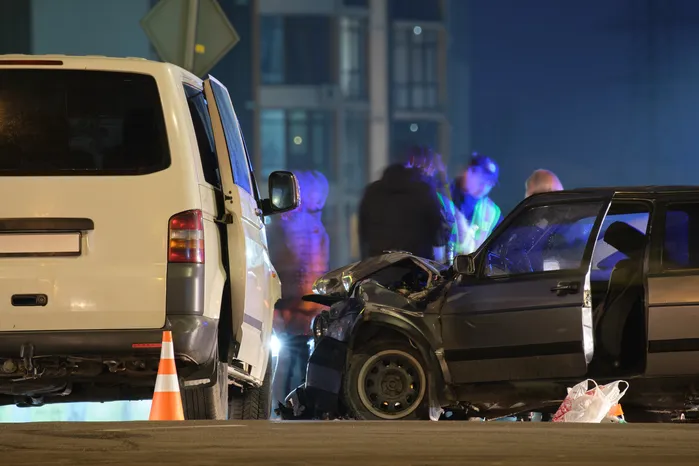10 min read time
Table of Contents

Following a Nevada car accident, your next steps will determine whether you obtain maximum compensation.
Learn from a motor vehicle accident attorney the steps you should take following a car accident in Las Vegas.
8 Keys Things To Do After a Car Accident
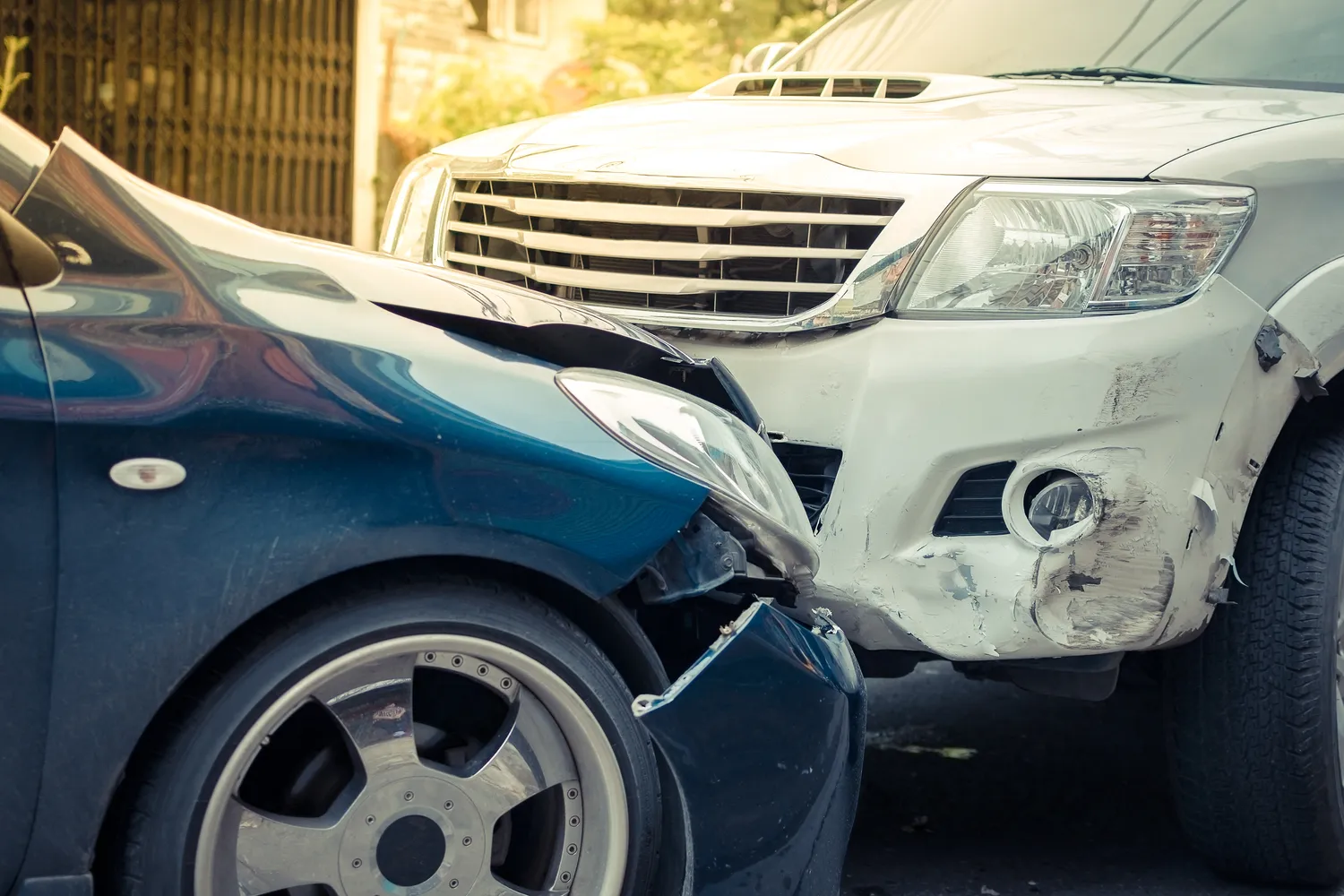
Ensure Safety
The moments after a car accident can be chaotic and stressful, but you must always ensure your safety and that of others. Here’s what to do:
Assess for Injuries
It is important to assess yourself and your passengers for possible injuries. Even the smallest of impacts can lead to severe consequences, and some injuries may not be noticeable due to adrenaline.
Move to a Safe Position
If the collision is minor and your car is operational, move it to the roadside or a nearby safe position.
This will prevent other cars from colliding with the accident scene and allow traffic to pass efficiently. If your vehicle is not operational, activate your hazard lights to warn other drivers.
Request for Emergency Services
Call 911 and report the car accident, especially if injured parties are involved. Emergency services will send the police, paramedics, and, if applicable, the fire department to your location.
In Las Vegas, car accidents should always be reported following legal and medical protocols.
Document the Scene
After ensuring everyone’s safety, the next step is to document the accident scene. Properly documented, this information can help with your insurance claim and any subsequent legal claim.
Gather Info
Exchange names, phone numbers, and insurance info with the other driver(s). Be sure to get:
Names and phone numbers
Names of insurance companies and policy numbers
License plate numbers
Vehicle identification numbers
Make, model, and color of all vehicles
Make sure to note the contact details of the other driver’s insurance company for future reference.
Take Pictures
Document the accident scene with your smartphone. Take wide and close-up shots of the vehicles involved, including any damage.
Take photos of the area surrounding the vehicles, including road markings, traffic signs, and any skid marks or other debris.
Get Witness Info
If there are witnesses to the accident, get their names and phone numbers.
Witnesses to the accident can independently verify what happened, which can benefit your insurance claim and any legal claim.
File a Police Report
In Las Vegas, a police report must be filed for any accident involving injury, fatality, or property damage.
Even if you don’t think the accident warrants it, filing an official report is always best. When police respond:
Give a True Statement
Give the police an accurate statement of the events that occurred. Include factual information, and do not guess who is at fault or responsible for the injury.
Get the Report
Ask the officer taking the report how you may get a copy. The police report is needed for insurance purposes and any legal action.
Seek Medical Attention

Even if you don’t feel injured immediately after the accident, seeking medical attention is essential. Some injuries, such as whiplash or concussions, may not manifest symptoms until hours or days later.
Visit a Doctor
A medical professional can evaluate your condition, document any injuries, and provide necessary treatment.
This documentation, including medical records, will also be crucial if you file a personal injury claim.
Follow Medical Advice
If you are told to follow up with your doctor in a few days or to take it easy for a week – do as you’re told.
Seeking proper medical attention helps you feel better and builds your case should you seek compensation for injuries.
Document Every Detail
Documenting every aspect following a car accident can significantly help with insurance companies and possible legal claims.
Medical Documents
Copy all medical reports, prescriptions, and bills related to the accident, as these will be essential for your insurance claims.
Repair Invoices
Get the invoices or estimates for vehicle repairs. If your car is a total loss, you will need a written explanation from your insurer.
Letters
Keep copies of all letters exchanged with your insurance company, medical facilities, and possible legal counsel.
Speak with an Attorney
If you were seriously injured, suffered substantial property damage, or have liability questions regarding the accident, speaking with a personal injury attorney may be helpful.
Legal Counsel
An attorney can advise you of your rights, negotiate with insurance firms, and, if necessary, represent you in litigation.
An attorney can also help you navigate interactions with insurance adjusters to ensure your rights are protected.
Statute of Limitations
Nevada has a statute of limitations on personal injury claims, generally two years from the date of injury. Talk to an attorney early to ensure you don’t miss time limitations.
Be Careful What You Say and Post
In today’s world of social media and easy access to information, it is important to be careful what you say and post about the crash, offline and online.
Do Not Admit Liability
Don’t say you’re liable for the crash or send messages to insurance firms saying you’re liable. Liability is not always clear-cut and should be determined by experts.
Be Careful on Social Media
Do not post information about the crash or your injuries on social media. Insurance investigators often conduct investigations on injured parties online and try to use your statements against you.
Important Laws to Understand After a Car Accident in Nevada
If you have been in a car accident in Las Vegas, it is essential to know what laws apply to your situation.
In Nevada, there are Nevada Revised Statutes (NRS) that detail laws that govern drivers’ actions. When you or a loved one is involved in a car crash, knowing these laws will help you protect your rights.
Below is a guide to some important laws you should know after a Nevada car accident. With this helpful information, you can handle any situation after a car accident.
Duty to Stop and Report (NRS 484E.010 and NRS 484E.030)
NRS 484E.010: This statute mandates that the driver of a vehicle involved in an accident resulting in injury, death, or property damage must immediately stop at the scene. Failing to do so is considered a hit-and-run, a serious offense with severe penalties.
NRS 484E.030: This law requires drivers to report accidents to the nearest police department or the Nevada Highway Patrol if there are injuries, fatalities, or significant property damage. The report must be made as soon as possible and within a specified timeframe.
Exchange of Information (NRS 484E.050)
NRS 484E.050: Requires that drivers involved in a traffic accident exchange certain information. The information to be exchanged includes each driver’s name, address, vehicle registration, and insurance information. Furthermore, if so requested by the other driver, the driver must provide their driver’s license to the other driver in the accident.
Rendering Aid (NRS 484E.030)
NRS 484E.030: Requires that a driver involved in a collision provide any person injured in the collision with reasonable assistance. Reasonable assistance may include summoning medical assistance or, if safe to do so, transporting the person to a medical facility.
Accident Report to Department of Motor Vehicles (NRS 484E.070)
NRS 484E.070: A driver in an accident shall file a report with the Nevada Department of Motor Vehicles (DMV) if the accident involves bodily injury, death, or property damage exceeding $750. The driver should make the report within 10 days after the accident. Failing to report the accident can subject a driver to penalties.
Required Insurance (NRS 485.185)
According to Nevada statute NRS 485.185, all drivers must carry insurance covering minimum liabilities. The required coverages are:
$25,000 for bodily injury or death of any one person in any one accident
$50,000 for bodily injury or death of any two or more persons in any one accident
$20,000 for injury to or destruction of property of others in any one accident
If you drive uninsured, you may be fined and have your license suspended, among other legal remedies.
Comparative Negligence (NRS 41.141)
Nevada has a comparative negligence rule that governs liability in accidents under NRS 41.141.
In essence, if you are partially liable for the accident, your damages are cut by your percentage of liability.
For example, if your damages are $10,000 but you are 20% liable for the accident, you are entitled to $8,000. If your percentage of liability is greater than 50%, you are not entitled to recover damages.
Statute of Limitations (NRS 11.190)
The statute of limitations in Nevada (NRS 11.190) sets the time limit for how long you must file a lawsuit for personal injury.
In most cases, you have two years from the accident date to get your lawsuit filed.
In property damage claims, you have three years to file the lawsuit. If you fail to file within these time limits, you could lose your legal rights to take action.
Should I Hire a Las Vegas Car Accident Attorney?
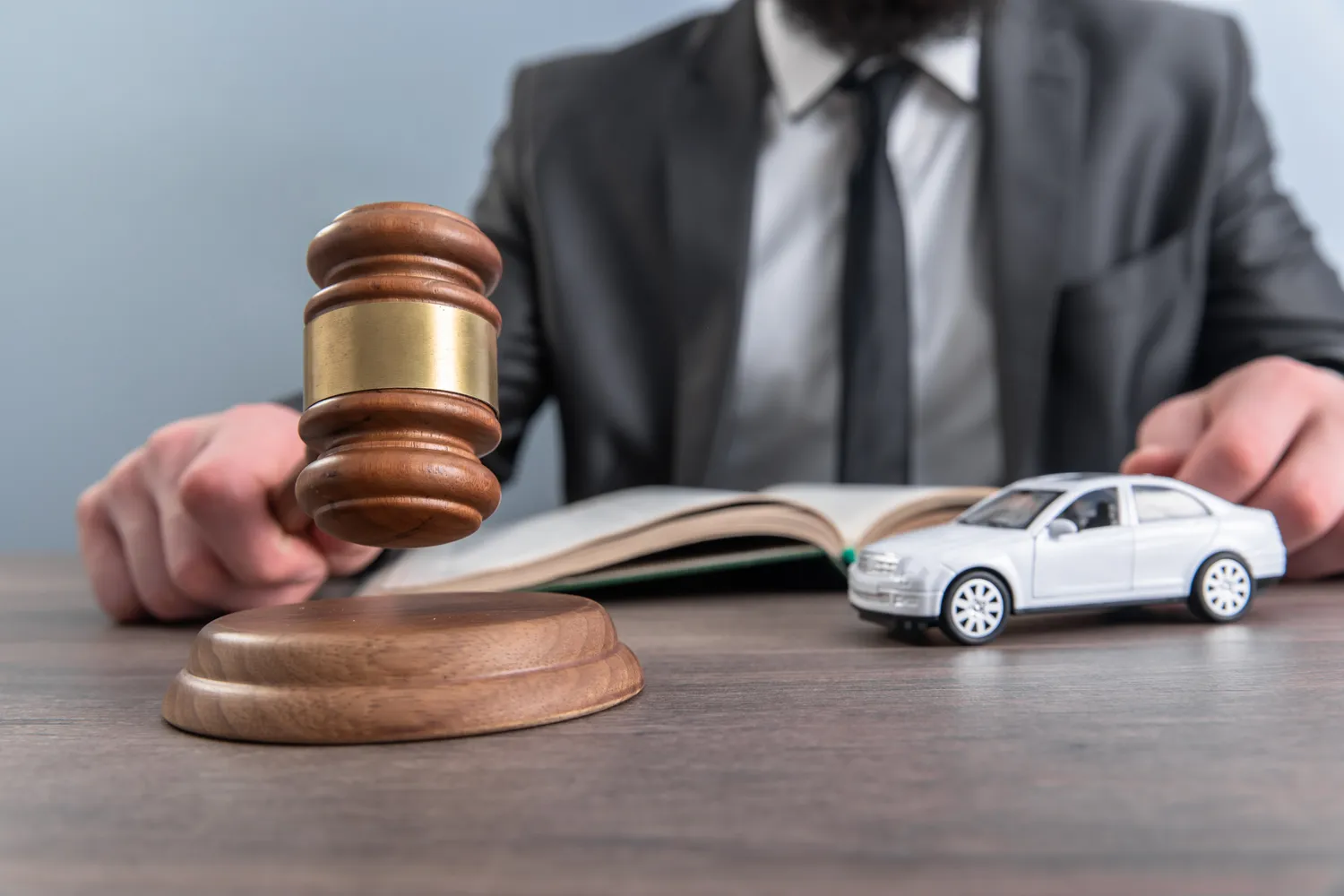
One of the most significant decisions a victim of a car accident in Las Vegas can face is whether or not to retain a car accident attorney.
There are varying degrees of difficulty when settling claims following a car accident. While some cases are pretty straightforward to handle without the need for legal representation, others are far from simple and may necessitate legal representation.
Here is a closer look at what you must consider when hiring a Las Vegas car accident attorney.
Evaluating the Accident Seriousness.
Small Accidents
If you were in only a minor accident with no injuries and little property damage, you may be able to handle the claim independently.
But keep in mind that complications can arise even in small accidents, such as disputed liability or insurance coverage issues.
Serious Accidents
If the accident resulted in serious injuries, fatalities, or significant property damages, you should speak with an attorney.
Serious accidents typically include large medical expenses, lengthy rehabilitation costs, lost wages, and extensive pain and suffering, which all must be properly calculated and reimbursed.
Navigate Legal Complications
Car crash cases can and often do become legally complicated quickly. This situation arises when multiple parties claim to be owed a financial recovery or when liability is contested.
Contested Liability
If liability (who is responsible for the accident) is disputed, an attorney can assist in the evidence-gathering process, interview witnesses, and prepare a strong case to rest liability.
Multiple Parties
The claim can quickly become legally complicated when multiple vehicles or parties are involved in an accident. An attorney can assist in sorting out the issues and ensuring that liability is appropriately allocated to each party involved.
Insurance Company Issues
Most insurance companies have entire departments of adjusters and attorneys working to reduce payment on claims. An experienced car accident attorney will negotiate with the insurance company to ensure you are justly compensated for your injuries and damages.
Understanding the Claims Process
Laws & Deadlines
Under Nevada law, there are specific time limits or deadlines for filing claims. An attorney will ensure all the paperwork is completed correctly and on time.
For example, the statute of limitations for filing a personal injury lawsuit is generally two years after the accident date.
Right Paperwork
Your attorney can help you compile and prepare all the relevant documentation to support your claim, including medical bills and records, police reports, witness statements, repair estimates, and other relevant information.
Maximzing Compensation
Damage Calculation
An attorney can precisely calculate all your damages, including medical bills, lost earnings, property damages, and even non-economic losses such as pain and suffering.
This way, you’re only pursuing the full amount of compensation you deserve.
Future Expenses
Serious injuries often entail long-term medical needs and rehabilitation. An attorney can collaborate with medical experts to approximate future medical costs and add them to your claim.
Punitive Damages
If the defendant’s actions amounted to gross negligence or intentional wrongdoing, you might be able to recover punitive damages.
These are punitive measures aimed to discourage the defendant from similar harmful behavior in the future. An attorney can establish whether this is a factor in your case and add the extra amount of damages.
Legal Representation in Court
Settlement negotiations (above) may not always be successful. You may have to file a lawsuit and eventually take your case to court.
Being in Court
An attorney can appear on your behalf in court and effectively present your case to a judge or jury.
All legal steps necessary to prepare for and argue your case will be taken by your attorney.
For example, attorneys easily handle all the required filings and appearances and ensure that your case is presented professionally.
Legal Strategy
Experienced trial attorneys build a legal strategy that addresses all aspects of a client’s specific case. This thorough approach, like no other, greatly enhances the potential for a case to be successful.
Talk to a Las Vegas Car Accident Lawyer Today
If you were involved in a car accident in Nevada, contacting a car accident lawyer should be a top priority.
However, you need experienced car accident attorneys at The Rodney Okano Car Accident Lawyer Law Firm, as with 20+ years of experience, millions recovered, and a standing 5-star rating with clients, our firm will recover the settlement you’re entitled to.
For a free consultation with a Las Vegas auto accident attorney, call (702) 566-3600.
Frequently Asked Questions
Obtain the Compensation You're Entitled To
Contact Us Today
Rodney Okano Car Accident Lawyer is a Las Vegas personal injury law firm with over 20 years of experience helping clients obtain maximum compensation following injuries from accidents such as car crashes, worksite injuries, and slips and falls. Over those years, The Rodney Okano Car Accident Lawyer Law Firm has become an experienced law firm that can ensure exceptional results for any of its clients.

